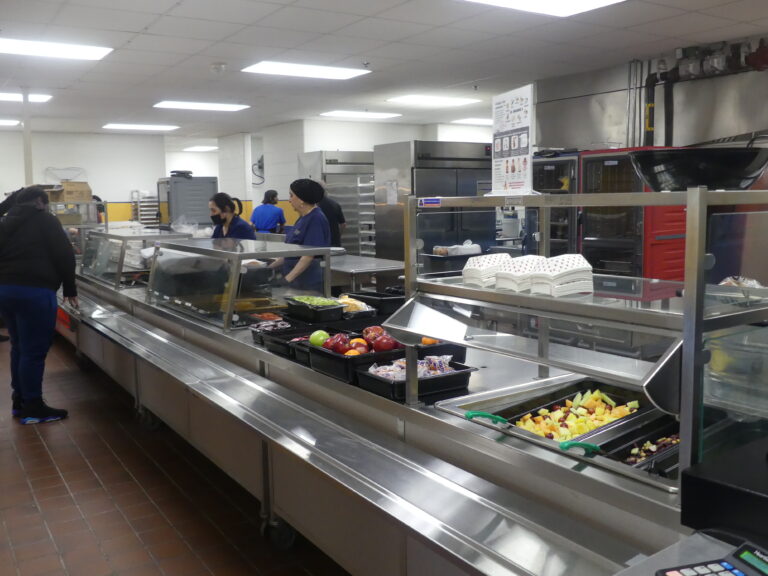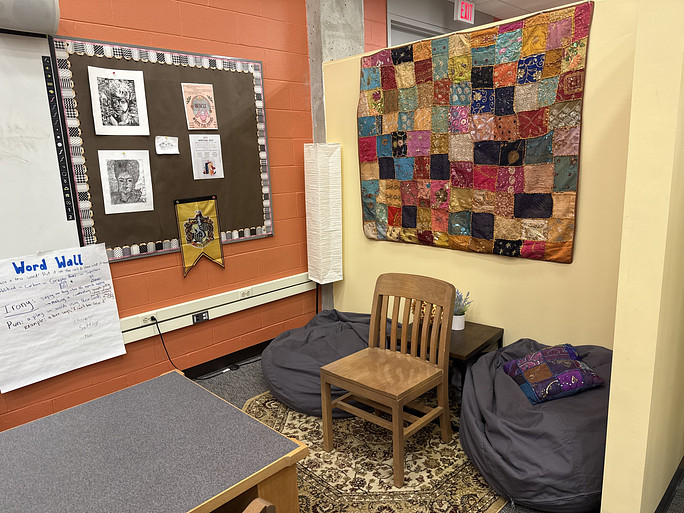The United States has a larger immigrant population than any other country with more than 44.9 million immigrants. Most people immigrated to the United States for a better life or simply because they wanted to move to a different country. Some immigrants moved to the United States with their families and had to adapt to a new way of life that they were not used to.
It can be stressful for immigrants, due to the difficulty of legal immigration status, associated disadvantage in the workplace, learning how to do things in the U.S., and stress due to missing family and friends in their home country.
Being a child of immigrant parents has its own perks and challenges. For immigrant parents, raising children in the U.S. can be complicated due to cultural differences. A common struggle for immigrant families is the language barrier and simply fitting in with the American culture.
Julie Yu, the Editor-in-Chief of The Blue and Gold, was born in Taishan, China, but she and her parents moved to the U.S. when she was a baby. Yu “liked growing up with some form of culture in [her] life,” although when she was younger she did not think “super highly” of her culture. Since Malden High School is such a diverse school, it opened her eyes to how “cool” her culture is. Without her culture, she would not be the same person she is today.
Sandra Rivadeneira, the Print Editor-in-Chief of The Blue and Gold, was born in Beverly, Massachusetts, but she is the daughter of two immigrant parents, her father is from Ecuador and her mother is from El Salvador. Growing up, Rivadeneira’s parents let her and her sister “[establish] their own identity,” they did not force their cultures on their kids.
Rivadeneira expressed that she “appreciates understanding the Latino culture” and added that she knows a lot of the history and politics of the area because her parents want her to be aware of why they wanted to immigrate to the United States and why she is more fortunate here than where they grew up.
With the cultural and psychological changes that occur during the cultural transition, there is often a difference between immigrant parents and their children. Rivadeneira explained that “[she wishes] they were more understanding about the differences in generations.”
Immigrant parents are sometimes more strict than most parents because things that are normal for other kids to do most, such as staying out too late past curfew, hanging out with friends they don’t approve of, talking back and talking about certain topics that they viewed as taboo.
In my own experience, my parents are strict because they want me to have a better life than they did and protect me from the mistakes that they made. Many immigrant parents departed from their countries to provide better opportunities for their children which means that they had to grow up in a difficult environment with most times meant a poor economy.
I was never allowed to go to sleepovers, they would not let me around certain people, I could not wear “revealing” clothes, I was not allowed to go out with my friends to the mall or movie theater and many other things I was not allowed to do. I think that these are things children have to deal with when they have immigrant parents.
I can sometimes understand and appreciate why they raised me this way. I learned to do what is best for myself and have good judgment. They taught me that no one’s opinion is more important than mine. They taught me to believe in myself and to prioritize myself. They always tell me “in America, you can be whatever you want: a doctor, engineer or lawyer (except for president [I was not] born here).”
Most significantly, American ideals were instilled in me by my immigrant parents. Growing up I was worried their parenting would set me apart from everyone else, but they made me who I am today. They have taught me a lot about how to live a decent, happy, safe life in America and for that, I will be eternally grateful.
Please share your experiences about growing up with immigrant parents by making a comment. We’d love to hear!



